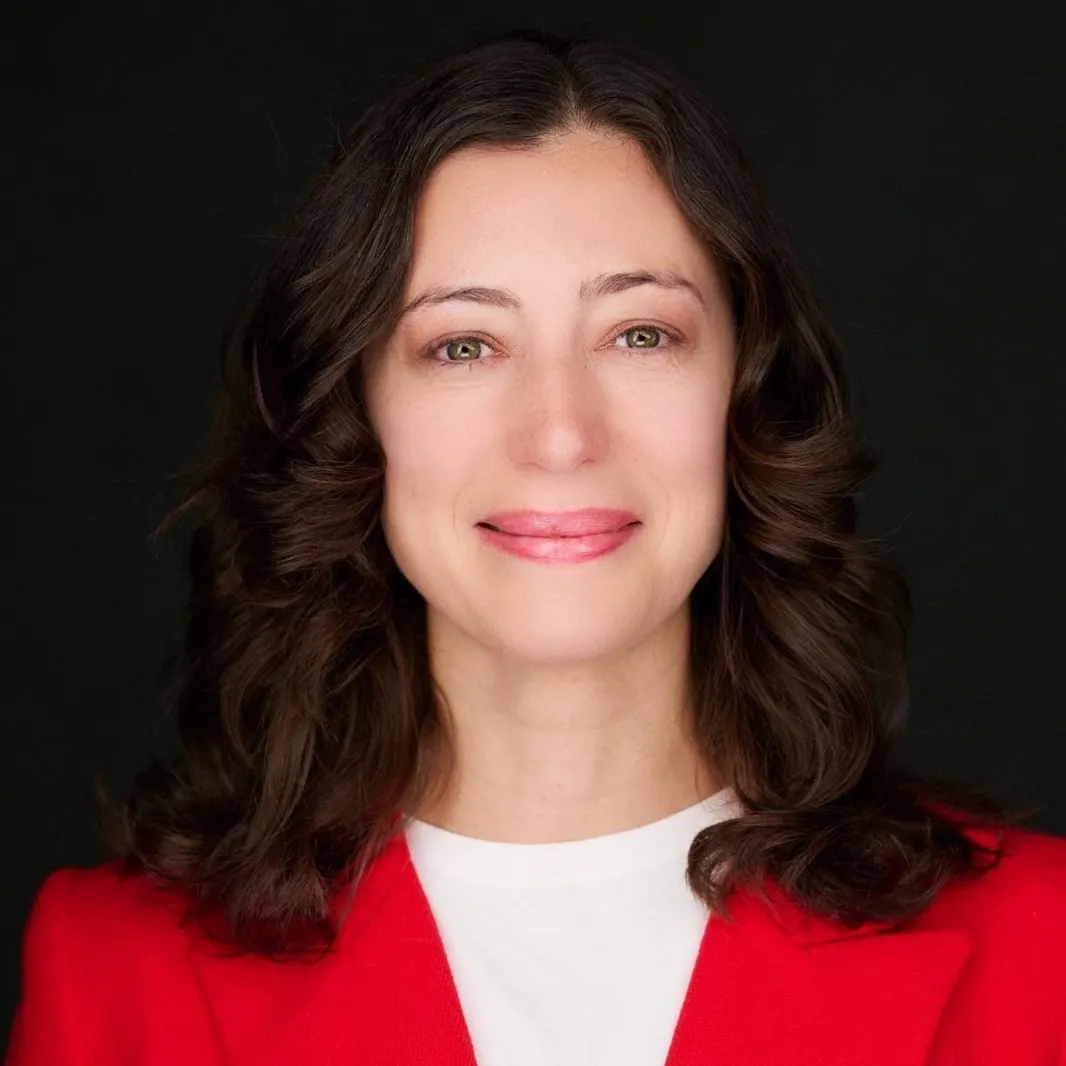Irina Berkon, CFO of Metallicus, took the stage at Consensus 2025 in Toronto last month to deliver a message many financial executives have grown wary of: crypto and blockchain still matter.
While AI dominates headlines and CFO inboxes alike, Berkon argued real progress is finally happening in crypto infrastructure and finance leaders should take note. Speaking from experience inside a company that builds blockchain solutions and uses them in day-to-day treasury management, she made a case for why this long-hyped technology is beginning to earn its place in the finance function.
In a recent interview, Berkon explains how Metallicus uses blockchain for multi-layered control, how she approaches forecasting in a market still taking shape and why the post-hype era of crypto could offer more substance and security than ever before. She also shares her unique but telling journey into the industry and her thoughts on the future of accounting talent.
Irina Berkon

CFO and board member, Metallicus
First CFO position: 2020
Notable previous employers:
- Golden Seeds
- TubeMogul
- Grant Thornton
This interview has been edited for brevity and clarity.
ADAM ZAKI: You spoke at Consensus about bridging the gap between traditional finance and blockchain. Are you using it in your finance function?
IRINA BERKON: As a crypto company, we not only offer this type of service, but we use it ourselves. Just a few minutes before this call, we had a real example of how we use blockchain technology for treasury management and fund control.
We manage various crypto wallets that hold our assets. One of them uses a blockchain wallet with a multi-signature feature. I had just asked someone to initiate a transaction requiring an M SIG to move funds from one wallet to another. That request was then routed to the designated signatories. Until it is fully approved, the funds remain locked — neither the initiator nor any single signer can move them alone. The transfer only happens once the required group signs off, as per our defined rules.
For me, the biggest benefit is the assurance that no single person can move assets independently. This not only enhances security but also prevents reconciliation issues. Ultimately, it’s all about strong treasury and cash management.
This will sound familiar to anyone who’s dealt with layered approvals in traditional banking. When managing crypto in your treasury, the same level of oversight is essential. You need full visibility into where assets are going and who’s authorized each transaction — whether it’s the CFO or another member of the finance team.
Let’s talk about forecasting. You’re planning for a future that doesn’t fully exist yet — this intersection of traditional finance, crypto and blockchain. How do you build a roadmap?
We talk and listen closely to our customers, who are primarily financial institutions — credit unions, community banks and similar organizations. From a revenue standpoint, our business model is very much like that of a typical B2B software company. I focus on what we’re selling, how we’re pricing it and how that translates into revenue. The main difference is that the technology we’re offering happens to be blockchain-based and crypto-adjacent.
“The biggest benefit is the assurance that no single person can move assets independently. This not only enhances security but also prevents reconciliation issues.”

Irina Berkon
CFO, Metallicus
When it comes to the volatility of crypto, whether prices go up or down, we view it the same way any company would treat volatile assets on their balance sheet. We happen to hold more crypto than cash, largely because we are a crypto company. We believe in the technology, we understand it deeply and we’re well-positioned to manage that exposure, perhaps more so than companies that don’t actively manage crypto in their treasury.
We monitor the market very closely. Still, our forecasting and financial planning remain driven primarily by our customers. All investment decisions regarding cryptocurrency allocations are made jointly by our CEO Marshall Hayner and me, with guidance from our board.
You started in crypto when blockchain was hyped as the answer to everything in finance. But now AI has taken over the narrative. Are you having to re-sell the value of blockchain to stakeholders?
I don’t think it was legitimate in the past. There was a lot of talk, a lot of hype, but not much real belief or action. We’ve been at this for a long time, having conversations with banks and regulators, trying to lay the groundwork. And only now are we seeing credit unions and small community banks come forward and say, “We’re ready. We want to implement this.”
The opposite of what most people assume is true. Interest is growing now, and the response we’re getting is stronger than ever. Back then, no one was integrating crypto or blockchain into their financial institutions in a meaningful way. There was speculation, and a handful of companies tried to do it, but they didn’t stick. There just wasn’t a strong use case or a clear path forward.
Today, it’s different. There are a few reasons for that. The regulatory landscape has started to mature, and the tone from the top, especially from regulators and policymakers, feels more supportive. That’s giving financial institutions more confidence to explore this space seriously.
And frankly, there’s also been a shakeout. A lot of the companies that weren’t serious or couldn’t actually deliver are gone. What’s left are the real builders — the companies that have stuck with it, developed the technology and are ready to support implementation. So now, not only do banks and credit unions feel safer from a compliance standpoint, but they also have solid, credible partners they can work with.
How did you go from public accounting into crypto? What pulled you into starting a career in this industry?
My story is very San Francisco. I was walking down the Embarcadero when a group of young entrepreneurs rode by on electric scooters. One of them stopped and said, ‘Hey, I think I’ve met you before.’ I said, ‘Yeah, maybe.’ Then he asked, ‘Aren’t you in finance?’ I said, ‘Yes.’ And then, right there on the sidewalk, he said, ‘Do you want to be CFO of our company? We’re doing an initial coin offering.’
I said, ‘Cool, what’s an ICO?’
He explained it. We’d [previously] met briefly at a friend’s house, and he remembered I had a finance background. He and his co-founder already had a license and a plan to write a white paper, attend conferences and launch their product. This was around August 2018.
I had to take off my auditor and public accounting hat and step into more of a business development and marketing role. They didn’t need a traditional CFO; they needed someone who could help build from the ground up. So I joined the team, traveled the world and pitched the product at conferences from Singapore to London.
“There’s a real compliance layer now. It’s not just about cool tech or internet culture anymore.”

Irina Berkon
CFO, Metallicus
In 2019, I spoke at Consensus in New York. After my talk, an auditor from BPM approached me and said they had a client in San Francisco — Metallicus — that needed a CFO to complete its audit. I met with [Marshall Hayner], and I asked, ‘Why do you need an audit?’ He said, ‘Because I want to get money transmitter licenses in all 50 states. I want to be a legit crypto company.’
He started walking me through the compliance framework he was building, and I thought, ‘This is perfect.’ After seeing so much chaos in the space, I wanted to work with someone serious about doing things the right way. That was January 2020, and I’ve been with Metallicus ever since.
What’s kept me here — and in this industry — is that it’s finally moved beyond the hype. There’s a real compliance layer now. It’s not just about cool tech or internet culture anymore. There are real products being built, and major financial institutions are starting to implement them. This is infrastructure.
That said, we still have fun. Marshall is on the board of the Dogecoin Foundation, so we’re close to the meme world. But we’re also doing serious work, and the space now demands serious skill sets. These are people with backgrounds in public accounting, regulation and financial operations.
There’s this idea that fewer smart young people want to enter accounting. Do you have thoughts on what would help solve the pipeline issue?
I talk to my audit team about this all the time, especially the younger folks. I think there’s this expectation now that big opportunities will just fall into your lap. And in crypto, I’ve seen it firsthand, so many people with CFO titles who didn’t actually know finance. They got the title, but then what?
Firms absolutely should pay people well so they don’t burn out or leave public accounting too early. But we also need to be clear: you’re not going to land a serious CFO role — or any high-level finance job — without putting in the work.
“More people are going to want to work in blockchain and AI, which is only going to deepen the talent shortage in traditional industries.”

Irina Berkon
CFO, Metallicus
That means learning the fundamentals, building relationships and showing up consistently. Sometimes it’s a grind. Sometimes the hours are long. But that experience matters. That foundation is what prepares you for the next step. If you skip it, you’re just not going to be ready when the opportunity comes.
Public accounting gave me the discipline, the ability to work under pressure and the confidence to take on something new. When I was at Grant Thornton, we used to host industry conferences for restaurant clients. I remember being a fourth-year associate, sitting in a room with the CEO of Whole Foods and thinking, ‘How cool is this?’ That kind of access sticks with you.
Firms need to do more of that, give people a sense of where this career can take them. Yes, you have to put in your hours. But look at the payoff. No serious company is going to hire a CFO with no experience. More people are going to want to work in blockchain and AI, which is only going to deepen the talent shortage in traditional industries. So if firms want to retain their best people, they need to inspire them early.





